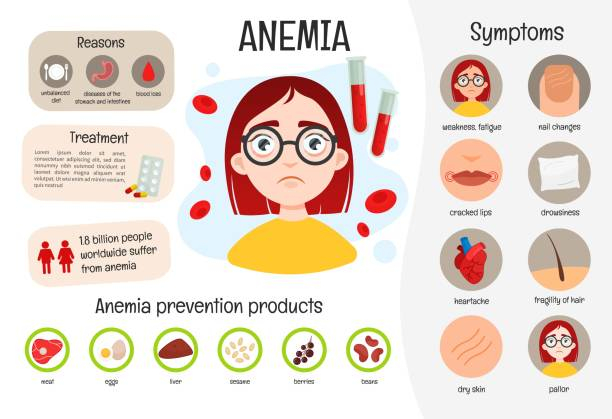Iron deficiency
Iron is a necessary mineral. It's a major component of red blood cells, where it links to hemoglobin to transfer oxygen to your cells. Iron insufficiency is one of the most frequent nutritional deficiencies, affecting more than 25% of the world's population. In preschoolers, this figure jumps to 47%. They are extremely likely to be iron deficient unless they are fed iron-rich or iron-fortified diets. Due to monthly blood loss, around 30% of menstrual women may be deficient, and up to 42% of young, pregnant women may be deficient as well.
Furthermore, vegetarians and vegans are more likely to be deficient since they ingest solely non-heme iron, which is not as effectively absorbed as heme iron. The most frequent side effect of iron deficiency is anemia, which occurs when the number of red blood cells and the capacity of your blood to carry oxygen decreases. Tiredness, weakness, a reduced immune system, and diminished mental function are common symptoms.












